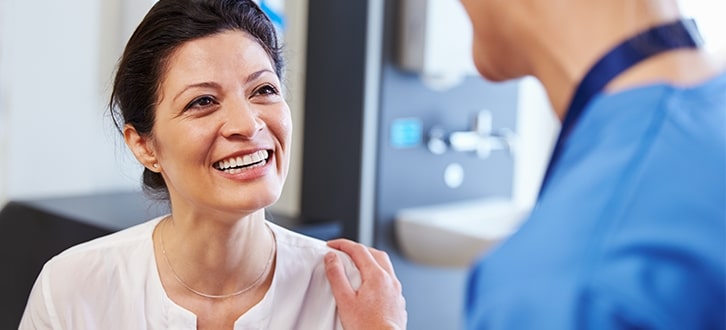Get back on the path to recovery after a hospital admission


With so much to do after a hospital admission, recovery can be overwhelming. Your healthcare providers will help guide you as you transition out of the hospital. There are a few simple things you can do to get back on the path to recovery.
Have your medications and changes reviewed
Discussing your medications with a doctor, pharmacist or nurse can help you stay on track for recovery. After a hospital discharge, it is common for unintentional differences to occur between what you are taking and what was ordered.¹
During a medication review, your medication orders are compared to what you take at home to avoid any inconsistencies. With medication changes often occurring in the hospital, juggling multiple prescriptions from different healthcare providers may cause you confusion. Clarify directions, update the dosage or double-check with your healthcare providers to see if there are any possible risks of interactions.
This is just one of many ways to take the stress out of medication management!
Understand how to manage your health and when to seek help
Before leaving the hospital, your healthcare provider may review your discharge instructions. This may include specific information about your condition and how to manage your health at home.
A few key things you should know are:
- What was my main problem causing hospitalization?
- What do I need to do to manage my condition at home?
- What should I do if I run into problems or my condition worsens?
- Why is it important for me to do this?
Your healthcare providers can clarify any missing or unclear details in your discharge instructions. You can also review our library of health condition resources for more information on ways to manage your health better.
Schedule a follow-up with your healthcare provider
Follow-up visits are an important part of recovery. Scheduling your follow-up appointments earlier may prevent readmission to the hospital.² At your follow-up appointment, bring your discharge instructions and medication list to help identify any additional support you may need during the transition home. It is also a good idea to prepare a list of questions you may have about managing your health to discuss during your visit.
If you do not have a healthcare provider, you can find a doctor in your area network by checking your plan benefits.
Arrange home health and delivery of medical equipment if you need it
Other services may be appropriate for recovery, depending on your unique needs. In a recent study, home visits were shown to reduce readmission for high-risk patients.³ A healthcare provider visiting you at home can help identify and assess any support you need to manage your health. Medical equipment such as a cane, walker or wheelchair may help you recover safely at home. Some equipment is available to purchase over the counter (OTC), while others may require a prescription from your healthcare provider.
If you are a Humana member, your plan might offer a benefit allowance to purchase OTC equipment or medicine.
Sources:
- Patricia L. Cornish et al., “Unintended medication discrepancies at the time of hospital admission,” Arch Intern Med, 165 (February 2005): 424–429, accessed June 28, 2023, doi: 10.1001/archinte.165.4.424.
- Liping Tong et al., “The association between outpatient follow-up visits and all-cause non-elective 30-day readmissions: A retrospective observational cohort study,” PLoS One, 13 (July 2018), accessed June 28, 2023, doi: 10.1371/journal.pone.0200691.
- Anita D. Misra-Hebert et al., “Healthcare utilization and patient and provider experience with a home visit program for patients discharged from the hospital at high risk for readmission,” Healthc (Amst), 9 (March 2021), doi: 10.1016/j.hjdsi.2020.100518.